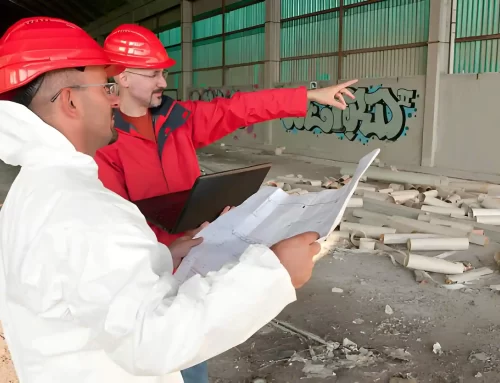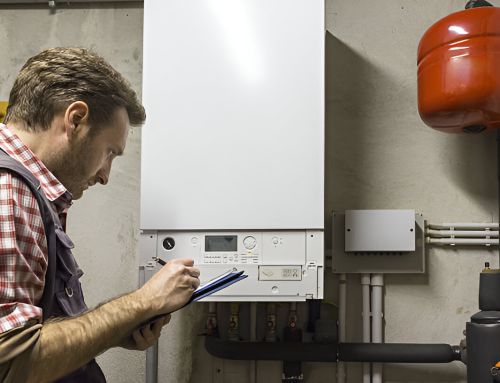The cost of EICR certificate varies significantly across the UK. Factors such as property size, location, and the complexity of the electrical systems all contribute to the final price. Understanding these variables is essential for both landlords and homeowners. However, hidden costs and the importance of hiring qualified professionals add another layer to this discussion. What should one consider when budgeting for an EICR?
Key Takeaways
Table of Contents
- Typically, the cost of EICR certificate ranges from around £100 to £300, depending on the size of the property, its location, and the complexity of the system.
- Landlords may face higher costs due to multiple property inspections and stricter compliance requirements compared to homeowners.
- Additional expenses may arise from necessary repairs, access issues, and follow-up inspections after initial assessments.
- Hiring qualified electricians ensures thorough inspections and compliance with current safety standards, vital for accurate reporting.
- Regular electrical maintenance helps prevent costly repairs and enhances the longevity of electrical systems, contributing to overall safety.
Understanding the EICR Certificate and Its Importance
An EICR certificate, or Electrical Installation Condition Report, is an important document that assesses the safety and condition of electrical installations in residential and commercial properties.
This report is essential for guaranteeing compliance with safety regulations, as it discovers possible dangers and determines whether the electrical systems are functioning correctly.
Typically conducted by qualified electricians, the EICR process involves thorough inspections and testing of the electrical system, including wiring, sockets, and circuit breakers.

The findings are documented in a detailed report, which may classify the condition as satisfactory or unsatisfactory.
Obtaining an EICR certificate is particularly important for landlords, as it is a legal requirement to safeguard tenant safety.
Additionally, property owners benefit from regular inspections, which can prevent costly repairs and enhance overall safety.
Fundamentally, the EICR certificate serves as an essential indicator of electrical safety and performance, making it indispensable for any property owner.
Cost of EICR Certificate in the UK Explained
The cost typically ranges from £100 to £300, depending on various factors. These include the size of the property, the complexity of the electrical system, and the location of the inspection. For smaller residential properties, lower fees are standard, while larger or more intricate systems may incur higher costs.
Additionally, prices can vary between service providers, with some offering package deals or discounts for multiple properties. Property owners should also consider the reputation and qualifications of the electrician, as this can impact both safety and quality.
It is advisable to obtain multiple quotes to guarantee a fair price while evaluating the expertise of each inspector.
Ultimately, investing in a thorough EICR inspection is essential for maintaining electrical safety and compliance with legal requirements.
How Much Does an EICR Certificate Cost in the UK?
What factors influence the cost of EICR certificate in the UK? The price for an Electrical Installation Condition Report (EICR) typically ranges from £100 to £250, depending on various elements.
Primarily, the size and complexity of the property play a significant role; larger homes or commercial spaces require more extensive testing. Additionally, the geographical location can impact pricing, with urban areas often charging higher fees due to demand and operational costs.
The qualifications and experience of the electrician conducting the inspection also contribute to the overall cost. Moreover, if any remedial work is necessary to address identified issues, this can increase the final bill.
Property owners need to obtain quotes from multiple providers to guarantee they receive a fair price for the EICR service while ensuring the electrician meets all regulatory standards and qualifications.
Factors That Affect the Cost of EICR Certificate
Several factors influence the final cost of EICR certificate. The size of the property plays a significant role, as larger properties typically require more extensive testing and inspection time. The location also affects pricing, with urban areas generally commanding higher rates due to increased demand. Additionally, the complexity of the electrical system can lead to variations in cost, particularly if upgrades or repairs are necessary. The experience and qualifications of the electrician conducting the inspection also contribute to the overall price.
| Factor | Description | Impact on Cost |
| Property | Properties with larger footprints require more thorough testing | Increased testing fees |
| Location | Urban areas may have higher service rates | Increased costs |
| Electrician Expertise | Qualified electricians may charge more | Variable pricing |
| Additional Repairs | Necessary repairs can increase costs | Adds to the total price |
EICR Certificate Costs for Landlords vs Homeowners
While both landlords and homeowners require an EICR certificate to guarantee electrical safety, the costs associated with obtaining this certification can differ considerably between the two groups.
Landlords often face higher expenses due to the need for multiple inspections across various properties. Additionally, they may be required to adhere to stricter regulations, which can increase costs.
- A thorough assessment of several rental units
- Possible repairs identified during inspections
- Compliance with local and national regulations
- The frequency of mandatory checks for rental properties
Homeowners, on the other hand, generally incur lower costs, as they usually need only one inspection for their primary residence.
However, factors such as property size and age can still influence the final price. Understanding these distinctions helps both parties budget effectively for electrical safety compliance.
Average Cost of EICR Certificates in 2025
The average cost of EICR certificates in 2025 reflects the evolving landscape of electrical safety compliance for both landlords and homeowners.
As the demand for rigorous electrical inspections continues to rise, costs have adjusted accordingly. On average, homeowners can expect to pay between £150 and £250 for an EICR certificate. At the same time, landlords might face slightly higher fees, often ranging from £200 to £300, due to the complexities involved in multiple properties.
Factors influencing these costs include the size of the property, the age of the electrical system, and regional pricing variations. Additionally, the qualifications and experience of the inspector may also play a significant role in determining the final price.
As legislation surrounding electrical safety tightens, investing in an EICR certificate becomes increasingly essential for ensuring compliance and safeguarding the electrical integrity of residential properties.
Is the Cost of EICR Certificate Worth It?
How can one truly measure the value of an EICR certificate? This essential document not only guarantees safety but also provides peace of mind for property owners and tenants alike.
The cost associated with obtaining an EICR certificate can often be weighed against several key benefits:
- Safety Assurance: Spot electrical risks, reducing risks of fires or accidents.
- Legal Compliance: Meets statutory requirements, avoiding legal repercussions for property owners.
- Increased Property Value: Enhances appeal to prospective buyers or renters by demonstrating a commitment to safety.
- Insurance Benefits: May lead to lower premiums or easier claims in the event of electrical-related incidents.
Ultimately, the cost of EICR certificate can be seen as an investment in safety and property integrity, outweighing financial losses from electrical problems or non-compliance penalties.
How to Save Money on Your EICR Certificate Without Cutting Corners
Finding ways to save money on an EICR certificate can be beneficial, especially for property owners looking to manage their budgets efficiently. One effective strategy is to shop around for quotes from multiple electricians, as prices can vary considerably.
Additionally, scheduling the EICR during off-peak times may lead to discounts, as electricians often have lower demand during these periods. Property owners should also consider bundling services; if electrical work is needed, combining it with the EICR can reduce overall costs.
Moreover, maintaining a proactive approach to electrical maintenance can minimise the risk of issues arising before the inspection, lowering repair expenses.
Lastly, staying informed about local regulations and requirements can help avoid unnecessary costs associated with compliance. By implementing these strategies, property owners can achieve cost savings on their EICR certificates without compromising on quality or safety.
The Importance of Choosing a Qualified Electrician for Your EICR
Choosing a qualified electrician for an EICR (Electrical Installation Condition Report) is paramount for ensuring safety and compliance. A skilled professional not only possesses the necessary certifications but also has the expertise to recognise possible dangers that an untrained eye might overlook.
This diligence helps prevent electrical faults that could lead to severe consequences.
Key reasons for selecting a qualified electrician include:
- Thorough inspections: Extensive evaluations of wiring and connections.
- Expertise in regulations: Knowledge of the latest safety standards and legal requirements.
- Accurate reporting: Clear, detailed documentation of findings and recommendations.
- Peace of mind: Assurance that the electrical system is safe and compliant.
Ultimately, choosing the right electrician is essential for safeguarding property and lives, making it a critical consideration for anyone needing an EICR.
Additional Costs You Should Be Aware of During an EICR
Many homeowners may be surprised to learn that the cost of obtaining an EICR certificate can extend beyond the basic inspection fee. Additional expenses may arise depending on the condition of the electrical system.
For instance, if significant issues are discovered, repairs may be necessary to bring the installation up to code, which can vary significantly in cost. Moreover, accessing hard-to-reach areas or complicated wiring configurations may incur extra charges due to increased labour time.
Some electricians may also charge for travel time, particularly if they are coming from a distant location. Homeowners need to inquire about these costs upfront to avoid unexpected charges.
Additionally, if follow-up inspections are needed after repairs are made, these will contribute to the overall expense. Understanding these additional costs can help homeowners budget effectively for their EICR certification process.
Frequently Asked Questions
How Long Does an EICR Inspection Typically Take?
An EICR inspection typically takes between one and four hours, depending on the property’s size and complexity. Factors such as accessibility, electrical systems, and any additional issues encountered during the inspection can influence the duration.
Are There Any Penalties for Not Obtaining an EICR?
Failure to obtain an EICR can result in penalties. Landlords may face fines or legal action if they do not comply with electrical safety regulations, emphasising the importance of timely inspections for tenant safety and legal adherence.
Can I Do the EICR Myself?
An individual cannot perform an EICR themselves unless they are a qualified electrician. The process requires specific knowledge and expertise to guarantee safety and compliance with regulations, making professional assessment essential for accurate results.
How Often Should I Get an EICR Done?
An Electrical Installation Condition Report (EICR) should be conducted every five years for rental properties or upon change of occupancy. Homeowners are advised to have it assessed every ten years to guarantee electrical safety.
What Happens if My Property Fails the EICR?
If a property fails the EICR, the owner receives a report detailing issues. Necessary repairs must be completed, and a follow-up inspection is required to guarantee compliance with safety standards before re-occupation.
Conclusion
In conclusion, understanding the cost of EICR certificate is an essential step for ensuring electrical safety in both residential and rental properties. While costs can vary based on several factors, the investment is often justified by the peace of mind and compliance with legal requirements it provides. Homeowners and landlords alike should prioritise hiring qualified electricians to guarantee thorough inspections. By being aware of additional costs, individuals can better navigate the financial aspects of securing this essential certification.
About the Author: LandlordCertificate
Related Posts
Get Social
Recent Posts
- Asbestos Management Survey London: Update Your Property Records
- Gas Safety Certificate London: Why Regular Checks Save Money Long-Term
- FRA London Explained: How a Professional Fire Risk Assessment Keeps You Compliant and Safe
- When a New Tenancy Requires Your EICR Certificate London Renewal
- Fire Safety Certificate London: Integrating Fire Alarms and Emergency Lighting













